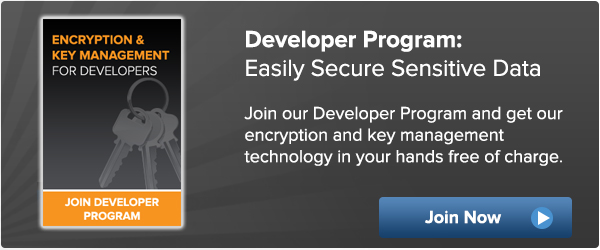The internet has become a portal for the transmission and storage of sensitive data. Most websites today gather information from potential or current customers, clients, and users. From credit card numbers to email addresses and passwords, few websites exist today that don’t collect some sort of personal data. Therefore, website developers are becoming more and more interested in learning how to build websites that can easily encrypt sensitive data that their client’s website may be collecting.

Encryption isn’t as widely used at the application and module level in websites as it probably should be. Protecting sensitive data using strong encryption from the moment a website accepts a customer’s information, and throughout transmission and storage of that data is the only method to ensure that data is never compromised. This is critical for websites using commerce modules or forms that collect a person’s health information, financial information, or other personally identifiable information (PII); and for businesses who wish to avoid a data breach.
As Drupal grows and more Drupal developers are beginning to interact with larger clients, the need to provide strong security to those businesses grows as well. The need for encryption will continue to grow as potential clients ask Drupal developers for standards-based security solutions that will help them meet compliance regulations and mitigate risk.
- Government websites, for example, will need to pass FISMA regulations around encryption.
- Large retail websites will need to pass Payment Card Industry Data Security Standards (PCI DSS).
- Colleges and Universities have multiple compliance requirements, as well as FERPA, to adhere with.
Helping clients meet compliance regulations will also require, in some cases, the need for encryption key management. Historically, developers only had three choices for encryption key storage: they could store the key in a file protected on the server, in the Drupal database, or in Drupal’s settings file. None of these options are secure, and would not meet several compliance regulations and general security best practices.
Encryption key management is more than a “key storage” solution. An encryption key manager protects encryption keys on a separate server (located in the cloud or as a physical Hardware Security Module (HSM) or in a (VMware) virtual environment) that implements control layers such as dual control and separation of duties. An encryption key manager manages encryption key creation, deletion, lifecycle, rollover, and archival. Key managers that are FIPS 140-2 compliant have undergone NIST validation and are based on industry standards. Choosing an encryption and key management solution based on standards will ensure your solution will stand up to scrutiny in the event of a breach.
If you are a Drupal developer, you can now join the Townsend Security Drupal Developer Program, work with our encryption and key management technology free of charge, and learn how to secure sensitive data in Drupal for your clients concerned with security.
Using Key Connection for Drupal, the first encryption & encryption key management module, Drupal developers can now build NIST compliant AES encryption and FIPS 140-2 compliant encryption key management into their Drupal websites.
Just click below to sign up:

